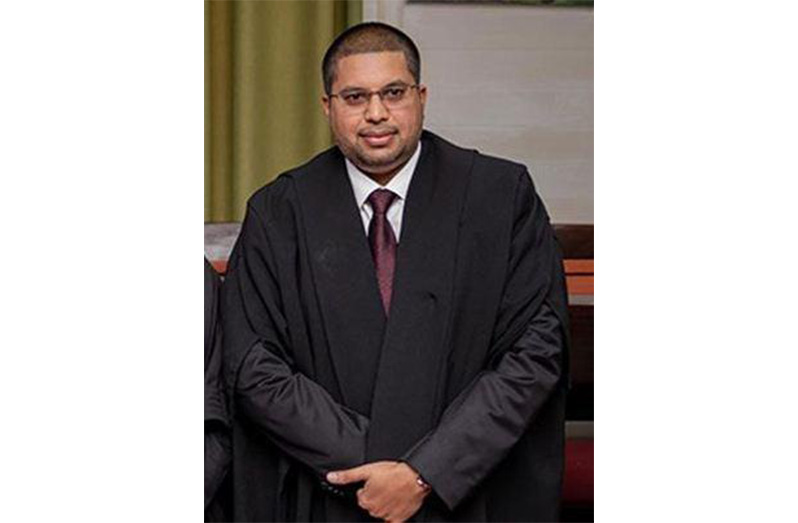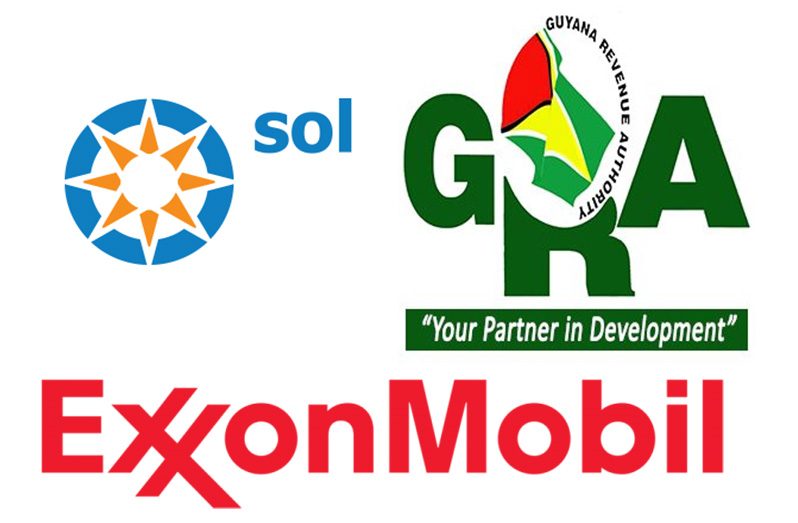–Judge rules company improperly retained fuel meant for ExxonMobil Guyana
IN a landmark ruling delivered on May 9, 2025, Justice Nareshwar Harnanan ordered the defendant, petroleum importer, SOL Guyana Incorporated, to pay the claimant, the Guyana Revenue Authority (GRA), more than $2.1 billion in excise taxes.
In a 14-page judgement rendered at the High Court in Demerara, the judge found that SOL improperly retained a significant portion of tax-exempt fuel intended for Esso Exploration and Production Guyana Limited (now ExxonMobil Guyana Limited).
The case centred on a consignment of 202,829,427 litres of fuel imported in 2020 by SOL Guyana under a tax exemption arrangement established in a Production Sharing Agreement (PSA) between ExxonMobil Guyana and the Government of Guyana.
The agreement allowed ExxonMobil to benefit from a 10 per cent excise tax rate on fuel imports used in petroleum operations—a considerable concession from the standard 50 per cent.
However, after an internal audit, the GRA discovered that only 147,950,610 litres of the fuel were actually delivered to ExxonMobil, leaving a shortfall of 54,878,817 litres.
As a result, the GRA assessed that the exempted fuel, which was not delivered to the rightful beneficiary, no longer qualified for the tax break and demanded payment of the full excise tax, totalling $2,196,908,802.
The GRA argued that while SOL Guyana was authorised to import the tax-exempt fuel on behalf of ExxonMobil, it had no independent entitlement to the exemption and was obligated to deliver the entire consignment to the designated beneficiary. Failure to do so, the GRA said, voided the exemption for the undelivered portion.
Despite multiple notices, the GRA said SOL failed to remit the excise tax owed on the retained fuel, prompting the lawsuit.

No Wrongdoing
In response, SOL denied any wrongdoing, arguing that they had paid all applicable taxes and operated under a system that allowed for retroactive tax exemptions based on subsequent verification. The company further claimed that administrative delays and software transitions within the GRA created confusion, leading them to believe that they could recover taxes on fuel delivered in 2019 through the 2020 exemption letters.
Justice Harnanan dismissed those ‘defences’, holding that SOL was never a beneficiary of the PSA tax exemptions but was instead merely an authorised importer acting on ExxonMobil’s behalf.
“While they [SOL Guyana Incorporated] may have encountered legitimate administrative uncertainty, it does not follow that it was lawfully entitled to unilaterally retain a portion of tax-exempt fuel under the guise of a self-directed ‘recoupment’ mechanism,” the judge held.
The court was particularly persuaded by documentary evidence, including a February 22, 2021 letter from SOL and a certified reconciliation report submitted by ExxonoMobil Guyana’s Logistics Manager, which confirmed the 147,950,610-litre delivery.
Justice Harnanan ruled that SOL’s failure to deliver the remaining 54,878,817 litres of fuel meant it could not claim a tax exemption on that quantity.
He said: “As previously established, the defendant’s ability to benefit from tax exemptions derived solely from the express authorisation of the claimant.”
In the absence of such authorisation, the judge added that any retention of fuel imported under exemption letters – ostensibly on the basis of an informal or retrospective reconciliation process- was most improper and impermissible.
“The defendant’s accounts amounted to an improper and unauthorised retention of tax-exempt fuel,” the judge stated. The High Court judge further emphasised that SOL’s entitlement to reduced tax rates depended solely on express authorisation from the GRA, which was conditional upon full delivery of the imported fuel to ExxonMobil.
The judge rejected SOL’s late-stage argument that it held a “legitimate expectation” of continuing tax relief due to the GRA’s previous conduct. The judge said that SOL claimed this expectation was violated when GRA stopped the practice during its transition to a new customs software system in 2019.
Justice Harnanan, however, concluded that this contention was not pleaded or supported by evidence and could not be raised for the first time in written submissions.
Additionally, the court rejected SOL’s counterclaim seeking a refund of $278,341,888 in allegedly overpaid taxes, stressing that it was “based on the erroneous belief of an entitlement to the tax exemption.”
In the ruling, Justice Harnanan ordered SOL Guyana to pay GRA the full excise tax of $2,196,908,802 along with interest at six per cent per annum from the date of filing of the lawsuit to the date of judgement, and four per cent thereafter until the sum is fully paid.
SOL was also ordered to pay $3 million in fixed costs by July 31, 2025. Attorney-at-Law, Jason Moore, the in-house counsel for the GRA, appeared on behalf of the agency, while attorneys Nigel Hughes and Stephen Roberts represented SOL Guyana.



.jpg)








